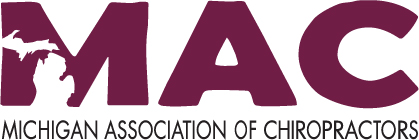Membership Dues Associated with Trade Associations and Business Leagues Are Deductible as an Ordinary and Necessary Business Expense
MAC members, did you know your professional dues are 98 percent deductible?
Generally, the Internal Revenue Service (IRS) allows business owners – whether they are sole proprietors or running a business entity – to deduct costs associated with running their business. Along such expenses as employee salaries, accounting fees, rent, and utility bills lies one more you may not realize can be deducted as a business expense: Dues to a professional organization such as the MAC!
What Can Be Deducted?
To be deductible, according to the IRS, business expenses must be both “ordinary” and “necessary.”
- “An ordinary expense is one that is common and accepted in your industry (IRS Publication 535, Business Expenses).”
- “A necessary expense is one that is helpful and appropriate for your trade or business. An expense does not have to be indispensable to be considered necessary (IRS Publication 535, Business Expenses).”
What Cannot Be Deducted?
One of the functions the MAC takes great pride in is our lobbying efforts on behalf of the chiropractic profession in our state. However, when a professional membership organization such as the MAC conducts such activities, the fraction of membership dues devoted to lobbying or political activities is not considered a deductible expense.
What Percentage of MAC Dues Can Be Deducted?
MAC membership dues have historically been very highly deductible. Only 2 percent of MAC dues are spent on lobbying activity, so you should be able to claim 98 percent for any dues paid by December 31, 2024 – even if your payment is for 2025 dues!
MAC Members: Consider Upgrading to One of Our VIP Clubs!
If you are a member of the MAC, now is a great time to upgrade your membership to one of our VIP Clubs (President’s, Ambassador’s, and Century) and take advantage of not only the tax deduction associated with your dues, but also the additional benefits of our highest level of membership, including free conventions for you and your non-DC staff members!
Non-Members: Consider Joining Now!
Now is an excellent time to join the MAC and take advantage of the excellent tax deduction our esteemed association has to offer. Not only can you be a part of the nation’s premier chiropractic association and reap the benefits of membership throughout the year, but your dues offer an excellent tax break. Click here or contact the MAC at info@chiromi.com or (517) 367-2225 for more information!
Additional Tips/Information on Deducting Your Dues
- The ability to deduct professional membership dues applies to sole proprietors or those who are running their own business entity, such as a professional corporation (PC) or professional limited liability company (PLLC).
- Other membership organizations, such as your local chamber of commerce and civic or public service organizations, may also be deductible. Consult your tax preparer to determine if any additional memberships have tax-deductible dues.
- Some tax preparers recommend not using the word “dues” on your tax return, as it may cause the IRS to question the expense. Instead, use other words, like “professional association membership fees,” to describe the deduction.
- As with all itemized deductions, be sure to maintain receipts and adequate records of all dues payments. In the event of an IRS audit, unsubstantiated membership fees could be disallowed from deduction.
- Fees paid to professional associations are classified as “miscellaneous deductions.”
- Sole proprietors/single-member LLCs should show these expenses in the “Other Expenses” section of Schedule C.
- Partnerships/multiple-member LLCs should show these expenses in the “Deductions”: section of Form 1065.
- Corporations should show these expenses in the “deductions” section of Form 1120.
Disclaimer: This article is information-only and does not constitute legal, tax, or accounting advice regarding any specific matter or situation. Legal, tax, and accounting advice may be given only on the basis of specific facts relayed by a client to an attorney, accountant, or other qualified professional. It is not intended to be all-inclusive. To ensure that the information provided conforms to your specific situation, consult an attorney or other relevant professional.

